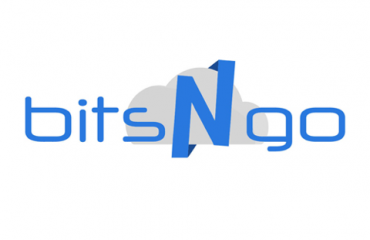
Startups are fast! Fast to launch, fast to grow, fast to succeed (if they’re doing it right). Their websites should be just as fast and easy to load content. And for startups with heavy content (like SaaS, Multimedia or video content), it’s challenging. That’s why so many of them turn to CDN to improve their website performance.
Now, I’m going to assume you already know the gist of what CDN is and whether or not you should get one (my guess is yes), and move straight to talking about the real challenge you are facing: how to choose the right CDN out of the tons of services that appear in a CDN query search results?
BitsNGo - An innovative Enterprise CDN for Startups & SMBs
This content is brought to you by BitsNGO, a global CDN made for startups and SMBs, powered by tier one infrastructure. BitsNGo is truly global, affordable, demands no commitment and includes 24/7 support. Sign up for a free trial now or Request a Demo
Choosing the right CDN for your needs
Choosing the right CDN is like finding a needle in a haystack. There are so many options out there. Of course, you can always research websites like CDN Planet, CDN-Advisor, and CDN Finder until your eyes bleed, but considering you are an entrepreneur, no way in hell you have the time to browse through all of them, let alone read them carefully.
The real problem in sifting through the enormous amount of data out there, and ending up choosing what your startup actually needs, is identifying your exact requirements.
You should weigh every option based on the parameters that are critical to your success and then see whether the result resonates with your needs. In this article we will list seven critical parameters that you should consider when choosing a CDN for your startup. Let’s jump right in!
#1 Content Type
This is a well-known issue in the CDN world. Do you need static content delivered or is a lot of your content dynamic? This question belongs at the top of your checklist.
While some CDNs specialize in static content delivery, others satisfy both static and dynamic content delivery. So, if you need static content delivery, get a specialized one. However, if you think your requirements will change from static to dynamic anytime soon, choose a CDN that caters to both.
This way, you won’t need to go through sifting process again.
#2 Points of Presence (POPs)
Where’s your target audience located? Are they local, hyperlocal, national or international?
Once you know where your users live, you can choose a well spread CDN that has POPs in their vicinity.
For example, there aren’t many POPs in China, but, if you want to target China, then choosing a POP that only caters to the U.S. won’t make any sense…. right?
#3 Features
Every CDN comes with its own set of features and you should opt for one that satisfies your needs.
Some important features are: HTTPS caching, immediate purge and API (which allows you to integrate the CDN management directly into your applications).
Also, Some CDNs offer security features as well, so you might be able to kill two birds with one stone.
#4 Analytics
How can you improve, if you don’t know what to improve?
That’s why you need analytics: it’ll ensure that you don’t shoot in the dark! So, choose a CDN that comes with advanced reporting capabilities and offers insights into:
- Traffic
- Cache-hit rate
- Geographic distribution
- Groups and zones
- Cost calculations
#5 Support
A lot of enterprises rely on tech support. Make sense, if you think about it, because most enterprise solutions demand a lot more maintenance than startups or SMBs solutions.
Choosing a CDN with a close support mechanism really depends on whether or not you are choosing a ‘heavy’ enterprise CDN or a more ‘light’ (but with Enterprise quality infrastructure) startup CDN. If the CDN is easy to use, I would compromise on support.
#6 Pricing
Pricing is crucial for every new organization and you can’t afford to burn through your cash by making the wrong choices…. can you? Of course, the bandwidth is the first parameter to look at when it comes to pricing, but not the only one.
It’s best to opt for a CDN that offers a pay-as-you-go pricing model, with no consideration to different zones (Published URLs) and groups. Another thing to look at is whether or not you are asked to commit in order to get low rates. Obviously, no commitment is always better.
#7 Setup
CDNs have a bad reputation of being difficult to setup and configure. When it comes to startups, fast and easy setup is the way to go. They can’t really afford anything else, and I’m not just talking about money.
Everybody says their setup is fast and easy and it can be if you choose a CDN that offers free and instant setup. Also, make sure that the configuration and optimization process is automated. Both are a good place to start.
Other features to take under consideration are:
- Storage
- VOD support
- Stream support
- Live stream support
- Detailed logs
- Origin pull or push support
- Advanced cache controls
- Custom SSL
- Secure token
- Geo reporting
- CORS support
- Custom response headers
- Custom CNAME
- Advanced analytics with groups
- Advanced management tools
- RESTful API
Always evaluate the configuration options and make sure that they include compatibility with Gzip, delivery, and fallback, which is the preferred configuration.
Conclusion

These parameters should help you choose a CDN that would be most beneficial for your startup.
However, I would advise that you test them first and evaluate their performance before making a final call on which to choose. The RUM testing methodology could be pretty effective here. Have we missed any critical points that you wanted to know about? Drop a note below and we’ll get back to you as soon as possible.



